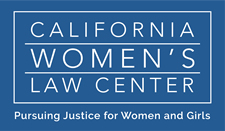-
- 90% of universities and colleges discriminate against women in sports. Our analysis shows that most intercollegiate athletic departments are not meeting any of the standards Title IX sets for schools to demonstrate equality in sports opportunities.
- Women miss out on $1 billion in athletics scholarships annually. NCAA schools alone allocate $3.5 billion to college scholarships, yet female student athletes are routinely denied hundreds of millions of dollars.
- NCAA institutions would need to provide women an additional 148,030 sports opportunities to match the same ratio of opportunities that are offered to men.
- Women cannot move to another competitive tier or geographic region to escape the sex discrimination. Data for the entire NCAA, NAIA, NJCAA, and USCAA paints a clear picture that intentional discrimination against women is not isolated to specific conferences, competitive levels, or geographic regions.
- Leslie Allen, Leadership Coach, Motivational Speaker, Champion Athlete, Survivor
- Nancy Hogshead-Maker, J.D., Oly, CEO, Champion Women
- Amy Poyer, J.D., Senior Staff Attorney, California Women’s Law Center
- Donna de Varona, Olympian, Journalist, Title IX Activist
:
FOR IMMEDIATE RELEASE: Monday, June 22, 2020
MEDIA CONTACT, California Women’s Law Center: Dinah.Stephens@cwlc.org / 360-790-4626
MEDIA CONTACT, Champion Women: Hogshead@ChampionWomen.org / 904.307.4293
New Title IX data analysis shows discrimination against women in collegiate sports is systemic and is getting worse
Webinar to be held on Tuesday, June 23, 11am PST / 2pm EST
(Los Angeles, CA) – Today, on the eve of Title IX’s 48th anniversary, Champion Women (CW) and the California Women’s Law Center (CWLC) released a report showing that discrimination against women in collegiate sports remains persistent throughout the country in all competitive levels—and is getting worse.
In 1972, Congress passed Title IX which promised equal educational opportunities for women and men in schools that receive any federal funding. Sport equality was set to be achieved by 1978, yet for decades we have known that women lagged behind men by all measurable criteria, including opportunities to play, scholarship dollars, and treatment. What we did not know was the enormous size of the gaps, the alarming trends away from equality over time, and what this systemic discrimination costs women and our economy.
Champion Women and the California Women’s Law Center performed an in-depth analysis of data available from the Equity in Athletics Disclosure Act. Because athletics is sex-segregated, discrimination and gaps are easy to measure. The data shows discrimination throughout intercollegiate sports and that the inequality is growing at an unrestrained rate. Key findings include:
All sports governing bodies are private associations; they have the power to require fairness or remove schools that intentionally discriminate against women. Champion Women and CWLC call on the NCAA, their member conferences, along with the NAIA, NJCAA, and USCAA, to hold schools accountable for providing women and men with equal athletic opportunities.
Nancy Hogshead-Maker, civil rights lawyer, CEO of Champion Women and 3-time Olympic gold medalist reflects, “Perhaps the biggest tragedy of our findings is that most women athletes who are denied a scholarship or a spot on a team will believe it was because they weren’t good enough, they didn’t work hard enough, they weren’t as talented as their male peers. But in reality, none of this is true. Women are simply up against systematic and intentional sex discrimination in collegiate sport, despite strong legal protections. We all know playing sports has life-long benefits in education attainment, employment, and health. The benefits should be equally available to women.”
Betsy Butler, Executive Director of the California Women’s Law Center and former California State Assemblywoman, says, “Unfortunately, the burden often falls on young female athletes to bring lawsuits against their schools and demand change, when in fact it is the responsibility of school leadership to ensure their students have equal access to athletic opportunities. It is unfair for administrators and athletic departments to pass this obligation onto their 18 to 22-year-old students.”
An online discussion will be hosted on June 23, 2020 to discuss the findings of this analysis in more depth.
TOPIC: Title IX: The Growing Gap in Women’s Collegiate Sports
DATE/TIME: June 23, 2020, 11am PST/ 2pm EST
WATCH THE RECORDED WEBINAR HERE
SPEAKERS:
For the full data report and legal memo, visit titleixschools.com or click here.
##
____________________________________________________________________________
Champion Women provides legal expertise and advocacy for girls and women in sports. Champion Women invests in projects designed to get change to scale. Focus areas include equal play, such as traditional Title IX compliance in athletic departments, sexual harassment, abuse and assault, as well as employment, pregnancy and LGBT discrimination within sport.
For nearly 30 years, the California Women’s Law Center (CWLC) has been a champion in the pursuit of justice for women and girls. CWLC works to break down the barriers and advances the potential of women and girls in California through transformative litigation, policy advocacy, and education. Since 1989, CWLC has advocated for and achieved policy change on a wide range of issues affecting gender discrimination and equality, Title IX enforcement, women’s health and reproductive justice, economic security, and violence against women.
